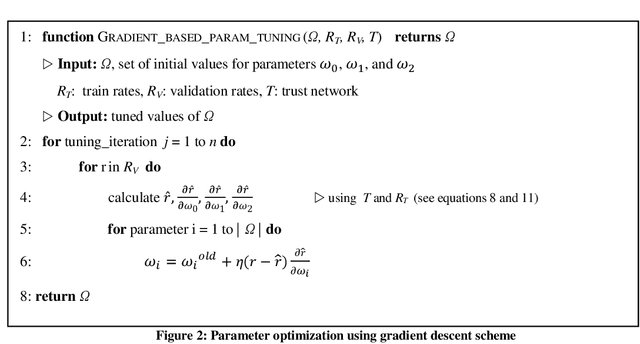Mohammad R. Moosavi
An Adaptive Similarity Measure to Tune Trust Influence in Memory-Based Collaborative Filtering
Dec 18, 2019



Abstract:The aim of the recommender systems is to provide relevant and potentially interesting information to each user. This is fulfilled by utilizing the already recorded tendencies of similar users or detecting items similar to interested items of the user. Challenges such as data sparsity and cold start problem are addressed in recent studies. Utilizing social information not only enhances the prediction accuracy but also tackles the data sparseness challenges. In this paper, we investigate the impact of using direct and indirect trust information in a memory-based collaborative filtering recommender system. An adaptive similarity measure is proposed and the contribution of social information is tuned using two learning schemes, greedy and gradient-based optimization. The results of the proposed method are compared with state-of-the-art memory-based and model-based CF approaches on two real-world datasets, Epinions and FilmTrust. The experiments show that our method is quite effective in designing an accurate and comprehensive recommender system.
 Add to Chrome
Add to Chrome Add to Firefox
Add to Firefox Add to Edge
Add to Edge